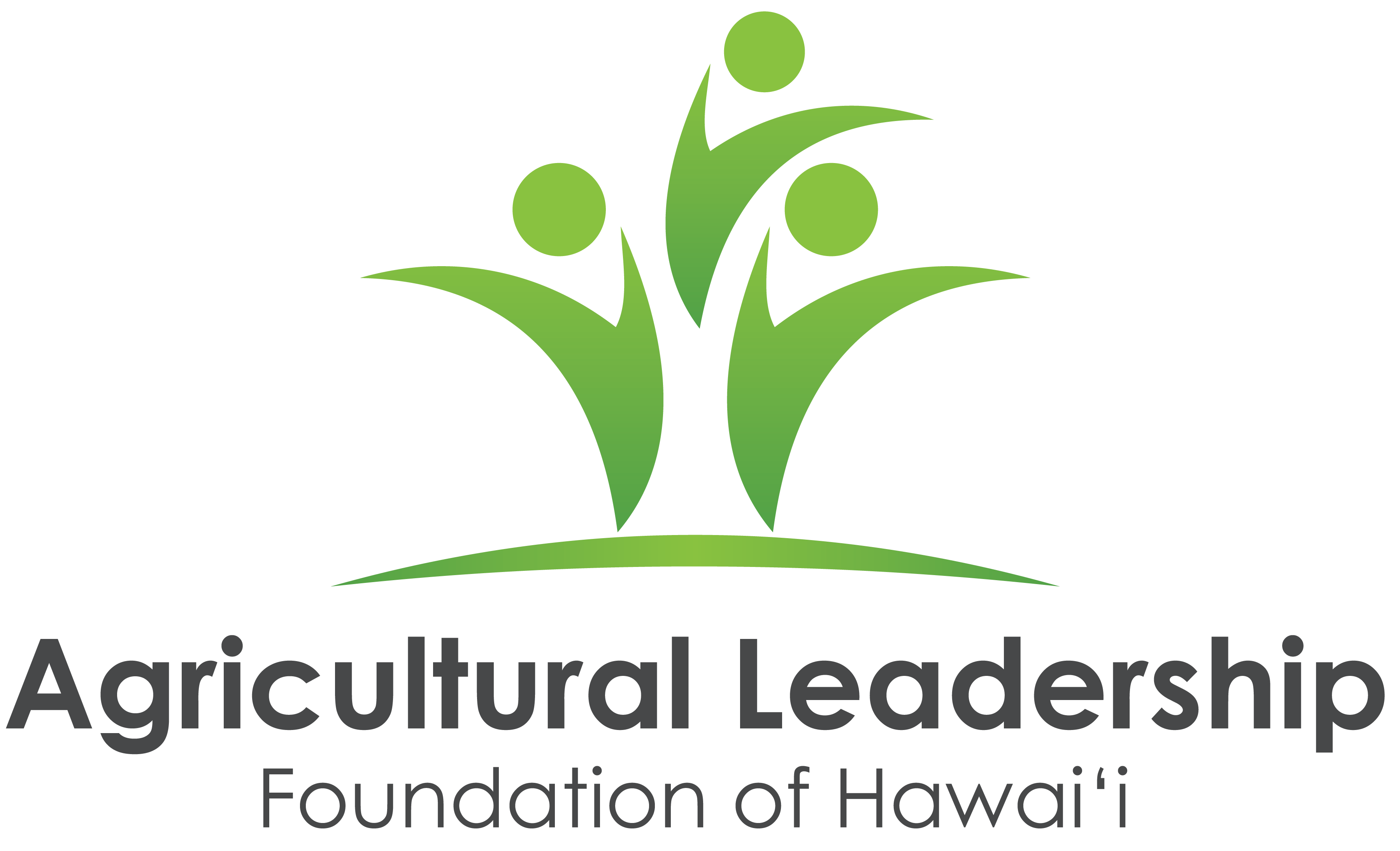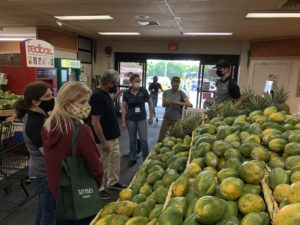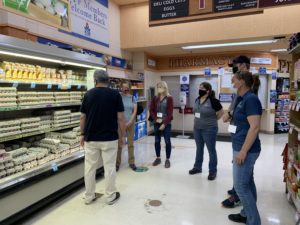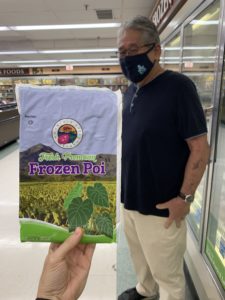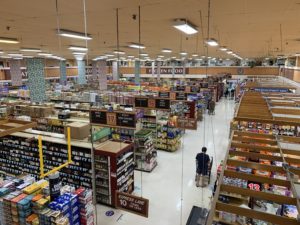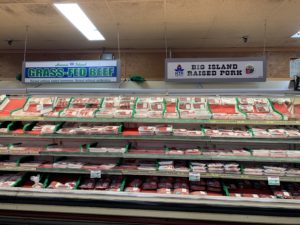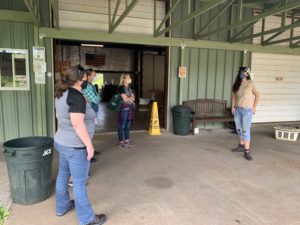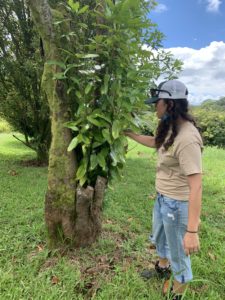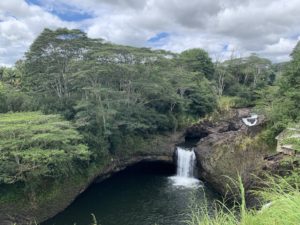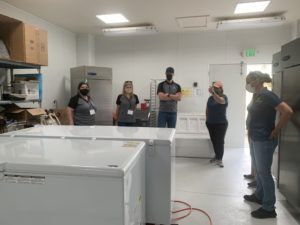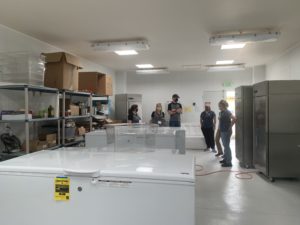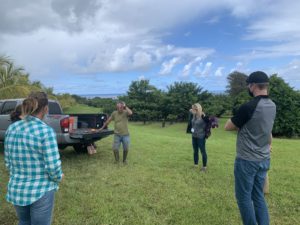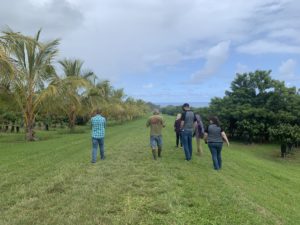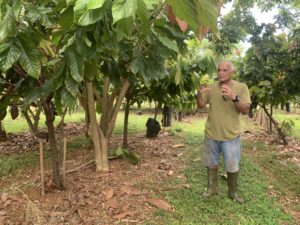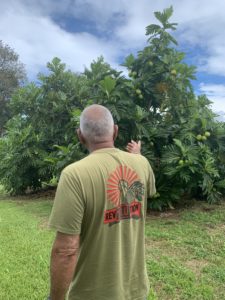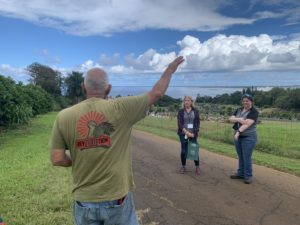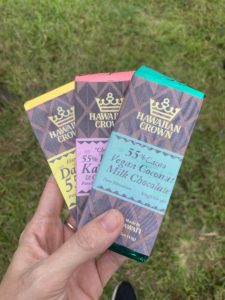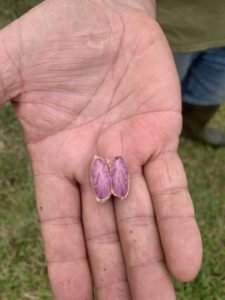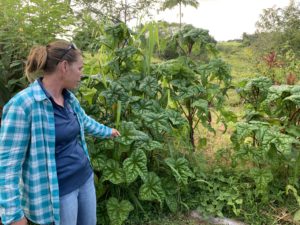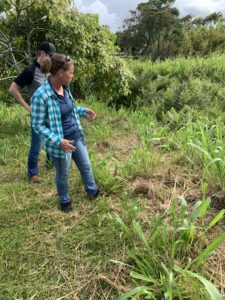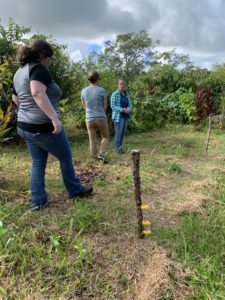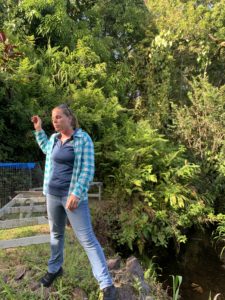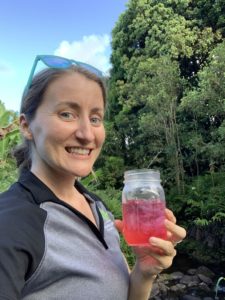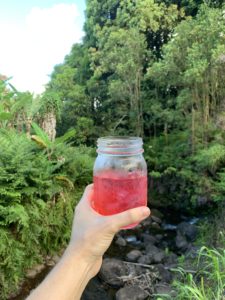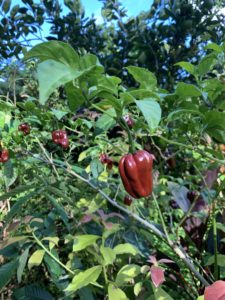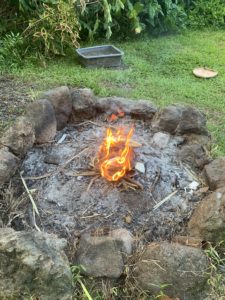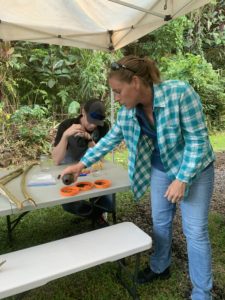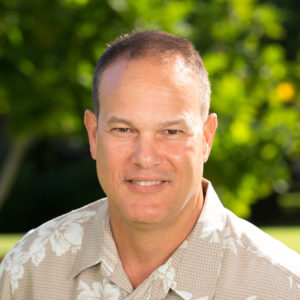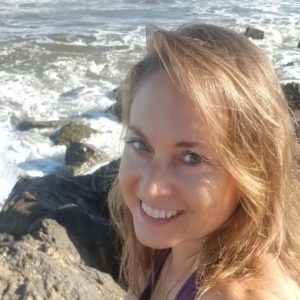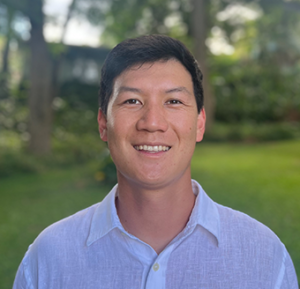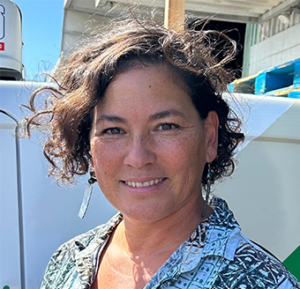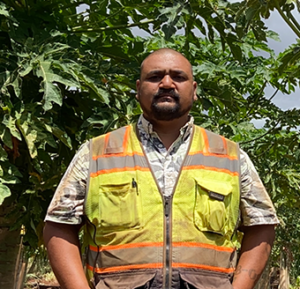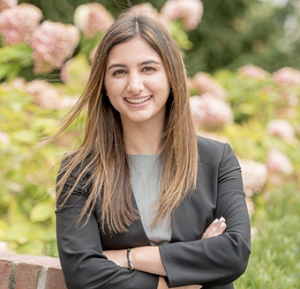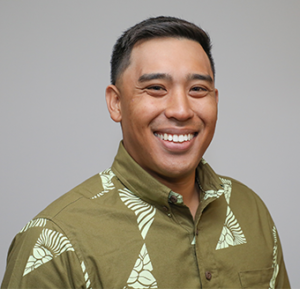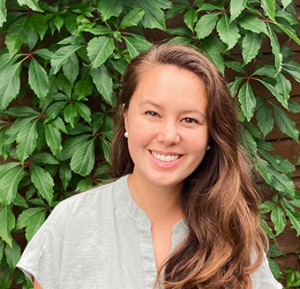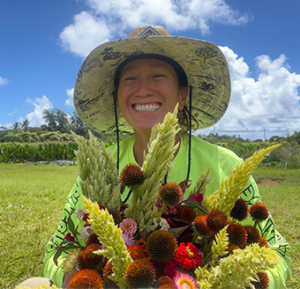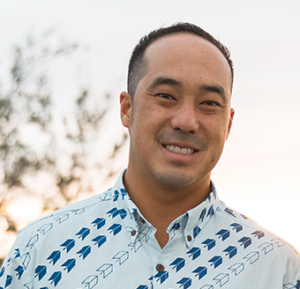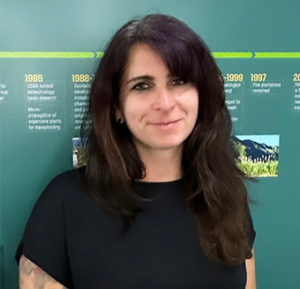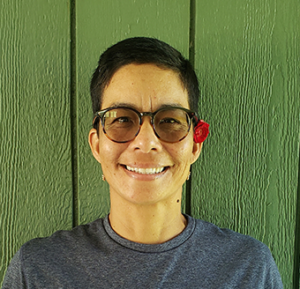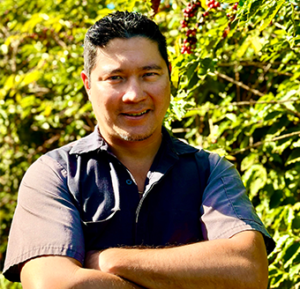Aloha! My name is Stephanie Mock, participant of the Ag Leadership Class XVII and this is my first blog post for our class detailing the first day of our Hawaii Island & Maui travel seminar during September 2021. You’ll see that links have been included that provide more background information on each of the sites we visited. My text/verbiage is focused more on trying to capture new, innovative, unique, and/or neat facts and takeaways from our site visits rather than just sharing background info of these organizations.
First stop of the day: KTA Super Stores
The one, the only…Derek Kurisu, executive vice president of KTA Super Stores on Hawai’i Island. A wealth of knowledge, marketing whiz, community-oriented but also business-savvy too. He said “hello” to no less than 15 different people in the store during our site visit with him.
Key Takeaways from our visit with Derek:
- “Make a statement in your store when people walk in”, first impressions are important and they grab the customer! Hence why colorful and bountiful produce is placed at the entrance
- Commitment to local is important to support farmers but always keep in mind that people ultimately buy either on price and/or loyalty
- Created the “Mountain Apple Brand” which seems to be the marketing behind a lot of local products in KTA; there are now 220 items under this brand and all sold in KTA stores
- A “private label” with the philosophy to diversify product lines and act as a teaching tool for farmers to diversify crops and provide consistently
- Felt that he could help farmers more through marketing/sales behind the brand
- Commitment to “local”—> What is considered “local”? Answer: Hawai’i Island
- Allowed us to see a bird’s eye view of the store from their office space. Derek spoke about how he would monitor customer traffic patterns in the store to identify “hotspots” to sell more products (brilliant)
Mahalo Derek for your time and for sharing your mana’o!
Second stop: O.K. Farms
O.K. Farms was started in 2002 and doesn’t stand for the farm just being “OK” but rather is a nickname for the collaboration between Ed Olsen (O) and Troy Keolanui (K), founders of the farm. O.K. Farms is located just outside downtown Hilo and grows a variety of crops but what they are MOST known for is their Kaimana lychee. With production of 125,000lbs of lychee every year (all of it staying in HI), this is O.K. Farm’s main crop but they also grow longan, mac nuts, coffee, heart of palm, cloves, nutmeg, curry leaf, and cinnamon. Additionally, they also are involved in agritourism by offering tours to locals & visitors with their company Hawaii Eco Tours.
With the shutdown of COVID, O.K. Farms had to pivot quickly and began producing CSA boxes for the local community with about ~200 subscriptions a week and also partnering with 40 other farmers on the Big Island to supply the boxes to the community.
Other takeaways from O.K. Farms:
- The Peach Palm is what supplies heart of palm
- Be careful with edible bamboo, if not properly cooked, it can turn to cyanide in your stomach!
- Girdling lychee trees provides a HUGE difference in productivity. “Girdling” is stripping some bark laterally around the trunk of the tree. With this technique, the farm has been able to produce 20,000-30,000lbs more annually!
- Their team consists of 20 farm staff which rotate through the year working on the Mac nut, coffee, and tropical fruits
- Becoming food safety certified can be expensive (when it need not be) and onerous on the farmers. They are committed to sharing the lessons and knowledge they gained from the process with other farmers so they don’t have to go through the same hurdles. Harmonized (Group) GAP is the way to go!
Mahalo to Kea Keolanui (Marketing Manager and Troy’s daughter) for hosting us!
Third stop: Kamehameha Schools ‘Alae Post Harvest Facility
We met with Marissa Harman, Director, Asset Management for Kamehameha Schools agricultural and conservation lands statewide, and ALP Class XII Alumni. The ‘Alae Post Harvest Facility is a facility built by Kamehameha Schools to help farmers meet food safety certification standards. Currently, the ‘Ulu Co-op uses this facility for their post-harvest handling.
KS is Hawaii state’s largest private landowner with 363,000 acres and is considered to be the 12th largest trust in the entire world. There has been movement internally at KS to look at their land management uses/strategies more holistically. To account for incorporating broader sustainability perspectives, KS now aims to focus more on “sustainable industry development” which this facility demonstrates. KS is generally known in the ag community for leasing land but with this facility (pictured below), there is a new course being charted to focus on post-harvest handling, food safety, and incorporating community & farmer needs into creating infrastructure.
The biggest takeaway I think our class took away from Marissa’s presentation was the fact that all of what KS does must be tied “back to the keiki”, the trust’s original mission in educating Native Hawaiian children. So how does this post-harvest facility aid in that mission? If you provide farmers the ability to be food safety certified and have access to clean facilities, you are able to increase and expand the network of locally-grown food that will provide nutrition for Hawaii’s children. If keiki are being fed nutritious local food, they are better able to focus on their education!
Mahalo to Marissa!
Fourth stop: Hawaiian Crown Plantation
We met with Tom Menezes, a “plant nerd/plant genius” who has over 30+ years of farming. He shared his knowledge on cacao, ‘ulu, kalo and more. He was a treasure trove of information as well as stories…”Let me tell you about when I went to Nepal with USAID…”. To be honest, I was so captivated with Tom that I took very little notes in my phone as I was entranced by his stories. Something I do remember learning is about “dark milk chocolate” which seems to be a new “type” of chocolate marketing where it is not quite milk chocolate but isn’t the super dark chocolate we have come to know as the chocolate industry in Hawaii.
Takeaways from Tom:
- Tom’s property, about 70 acres leased, sits right next to a cemetery and he was talking about how that public facing property makes it difficult to manage ag theft on his farm
- He also makes chocolate in his Hilo chocolate factory which has been mostly closed to the public during COVID but he’s still producing chocolate (he pointed out the chocolate drops on his shirt when we first met him)
- He self describes himself (and his former colleagues/friends) as “hunger fighters” and our class REALLY liked that concept!
Mahalo, Tom! Can’t wait to come back and see your factory/store. Your chocolate was delicious!
Fifth stop: No Spray Hawaii / Hawaii’s Simple Gourmet (our classmate’s farm!)
No Spray Hawaii is a permaculture homestead along the Hamakua Coast on the Big Island of Hawai’i which does not use any synthetic, chemical based fertilizers, herbicides, etc., a true “no spray” ethic. They welcome WWOOFers (almost 70 I believe!) to help educate people on the importance and feasibility of permaculture (and creating healthy soil!) not only here in Hawaii but throughout the world. I highly suggest checking out their website linked above to learn more about their mission, ethic, and to find educational resources. There is no way that I can adequately capture all of the amazing (and hard) work that No Spray does on their homestead/farmstead.
After a very long day of 4 site visits, our ALP classmate, Laura Rieber and her partner, Jesse Fujimoto, welcomed us onto their property where we entered a somewhat magical-feeling forest complete with so many different types of edible plants including but not limited to…chaya, katuk, a myriad of pepper varieties, cucumbers, and more. Laura showed us the property pointing out how they make compost teas, how they create healthy soil and shared facts with us about the number of microbes in healthy soil and that “healthy plants need healthy soil”. Her energy and enthusiasm (as well as passion) were infectious! Can you tell she likes soil?!
Our class was then served an AMAZING true farm-to-table dinner that was mostly prepared by Jesse who truly loves to cook (and that love was apparent). We had rabbit fritters (rabbits that they raise), spicy cucumber salad, katuk & sour cream dip, homemade sourdough bread, cassava fritters, stewed greens and more! I typically don’t eat a lot in one sitting but I ate 4 full plates, I had no modesty or self-discipline clearly, I knew that I only wanted more of this extravagant and mouth-watering meal. And since I was eating so much, I did not take any photos and our classmates didn’t either. It was just one of those experiences you enjoy in the moment and keep in your mind’s eye for later.
Agritourism tip of the day: If you are welcoming people onto your property and your farm road has potholes, be incredibly considerate like Laura and spray paint a white circle around it to let your guests know so they don’t drive into them! This was such a good trick that I hadn’t seen before and shows you the level of care & consideration that No Spray puts into their property and goals.
Mahalo to Jesse & Laura for a fabulous time of learning & food. By far, the best visit of the entire day for me and easily one of the top 5 meals of my life. Ambiance, passion, farm fresh food, and all of it being a surprise? Priceless.
